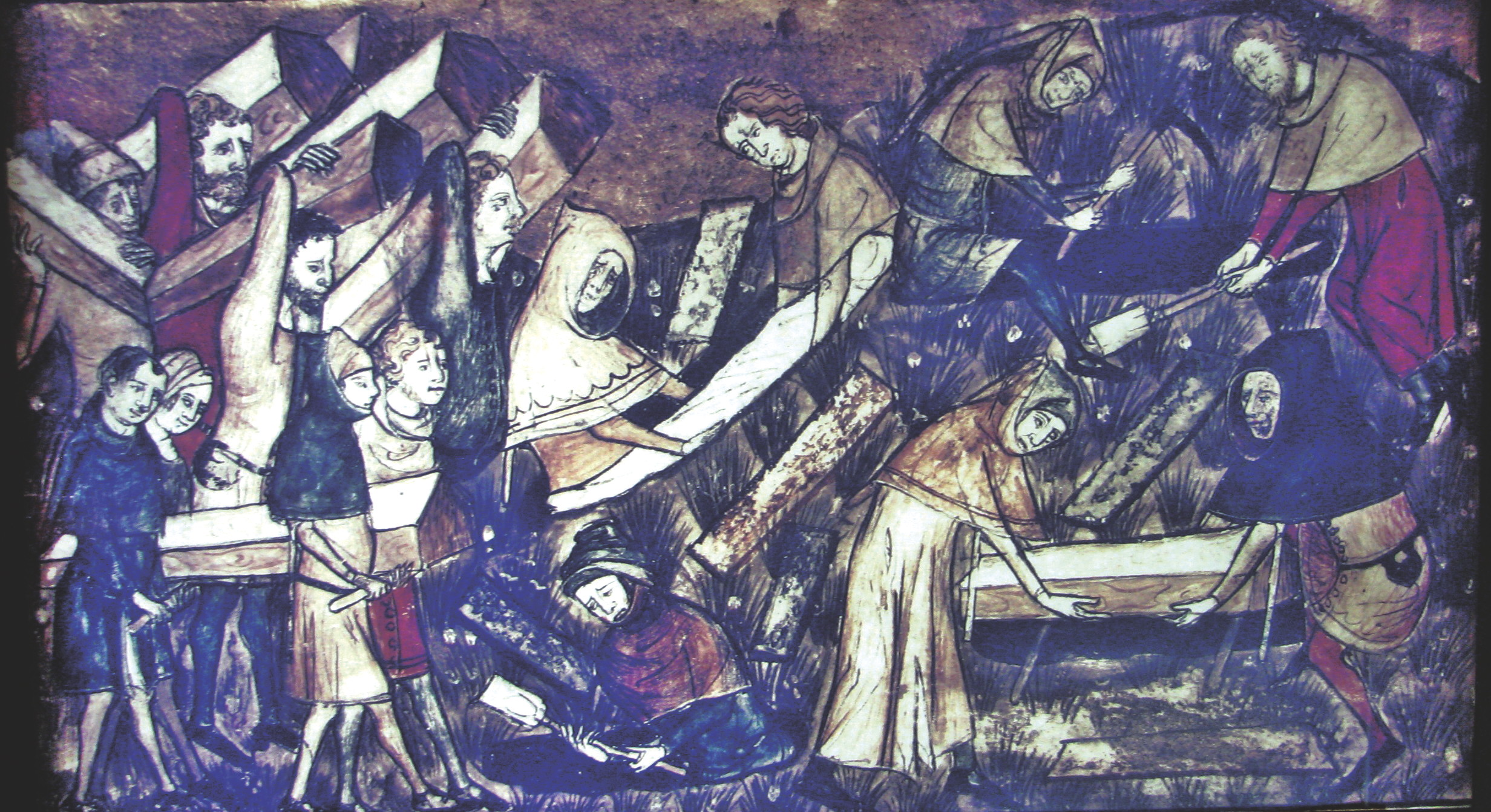Epidemics such as the Plague of Justinian (541 to 543) and the Black Death (1346 to 1353) killed off dozens of millions, but did not extend to all continents. The superpowers risked a nuclear holocaust during the 1962 Cuban Missile crisis but pulled back in the end. However, some 70,000 years ago, the global human population may have dropped below the 10,000 mark. When Lake Toba, a 100 x 30-kilometre (62 x 19-mile) crater was blasted out of the Indonesian island of Sumatra by a volcanic explosion, it was the most devastating eruption on Earth in 2 million years. Everything within an 800-kilometre (500-mile) radius was destroyed and volcanic ash spread two-thirds of the way across the Indian Ocean. The Toba eruption lasted a week and discharged an estimated 28,000 cubic kilometres (6,717.6 cubic miles) of magma into the atmosphere.
It has long been noted that there is little genetic diversity in humans compared with our nearest animal relative, the chimpanzee. In 2003, a study by Stanford University and the Russian Academy of Science showed that a ‘bottleneck’ in the human population occurred around 70,000 years ago. Humanity, then confined to Africa, was decimated by the Toba eruption, which sparked a six-year volcanic winter and a 1,000-year ice age. We are all the descendants of the very few who survived.
To find out the answer to more history questions, subscribe to All About History today!
